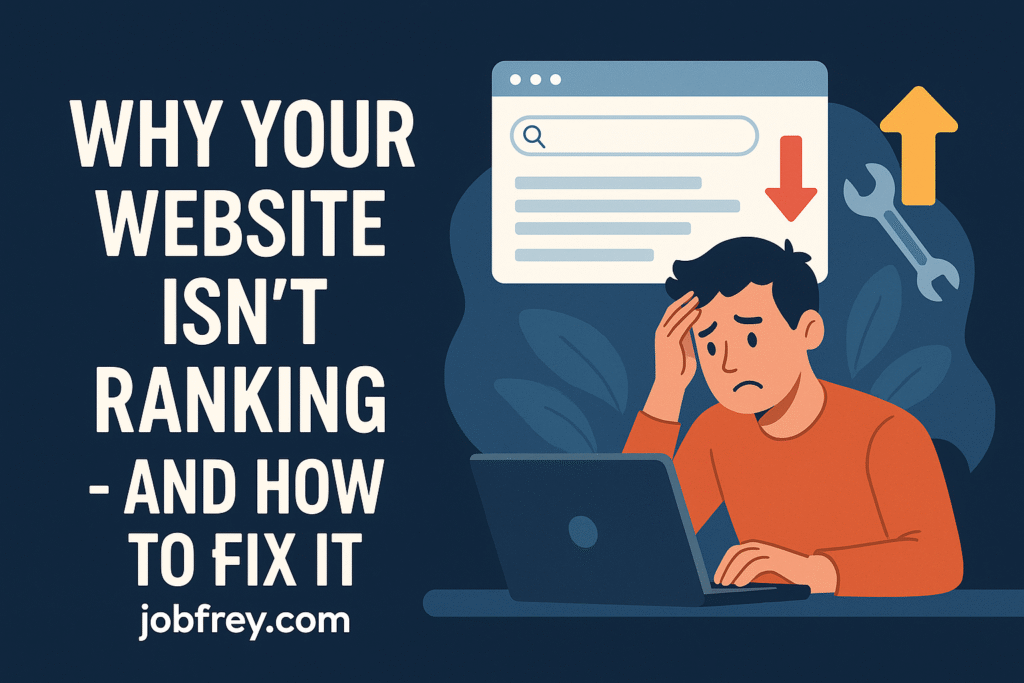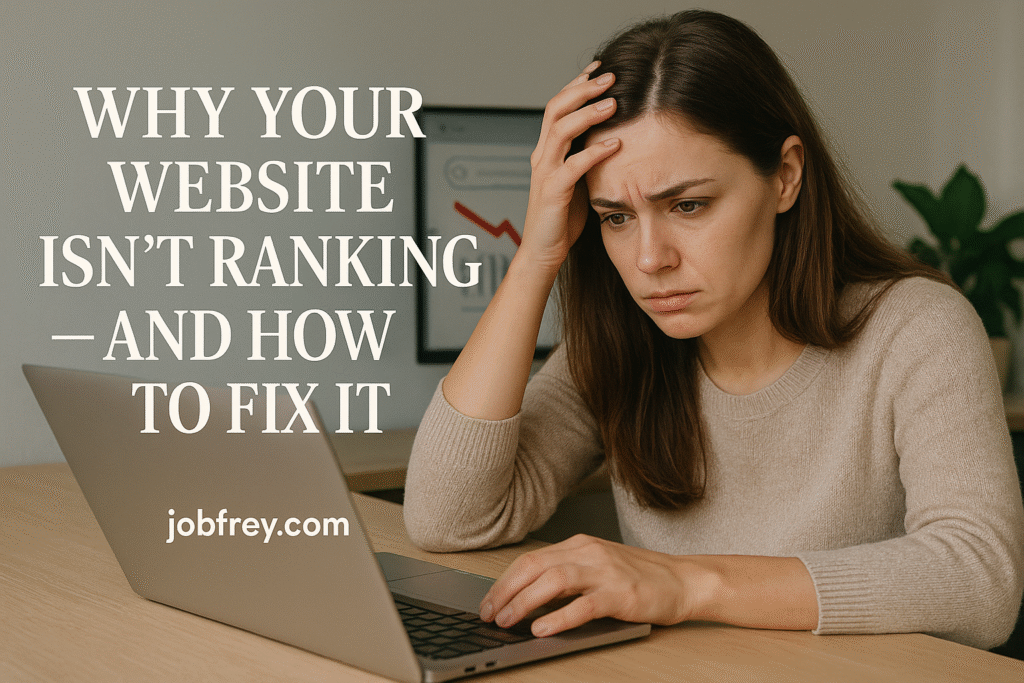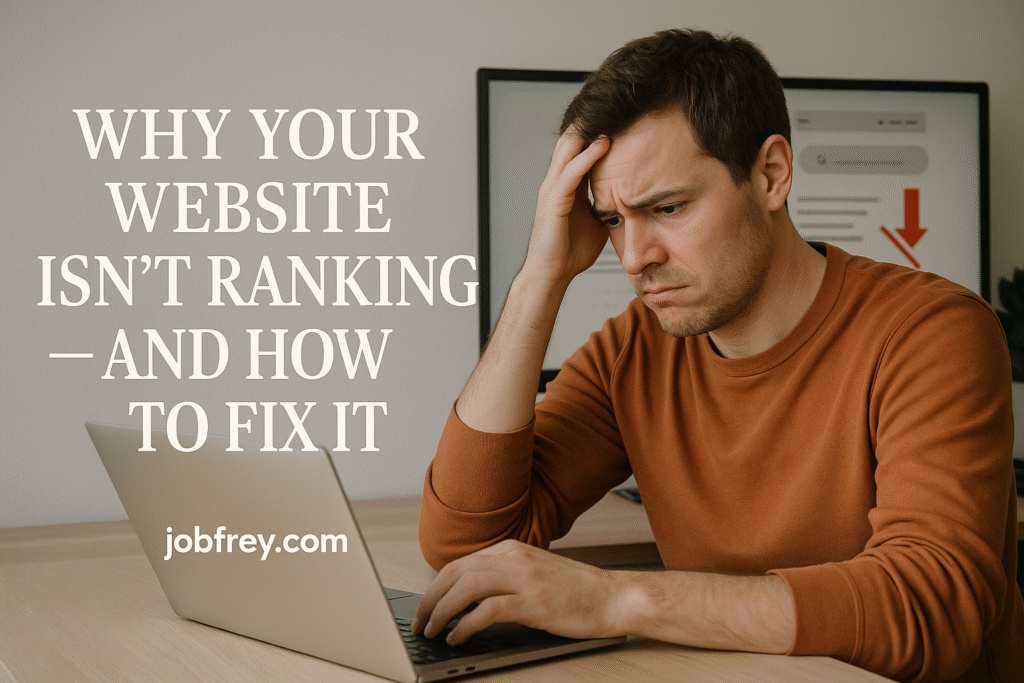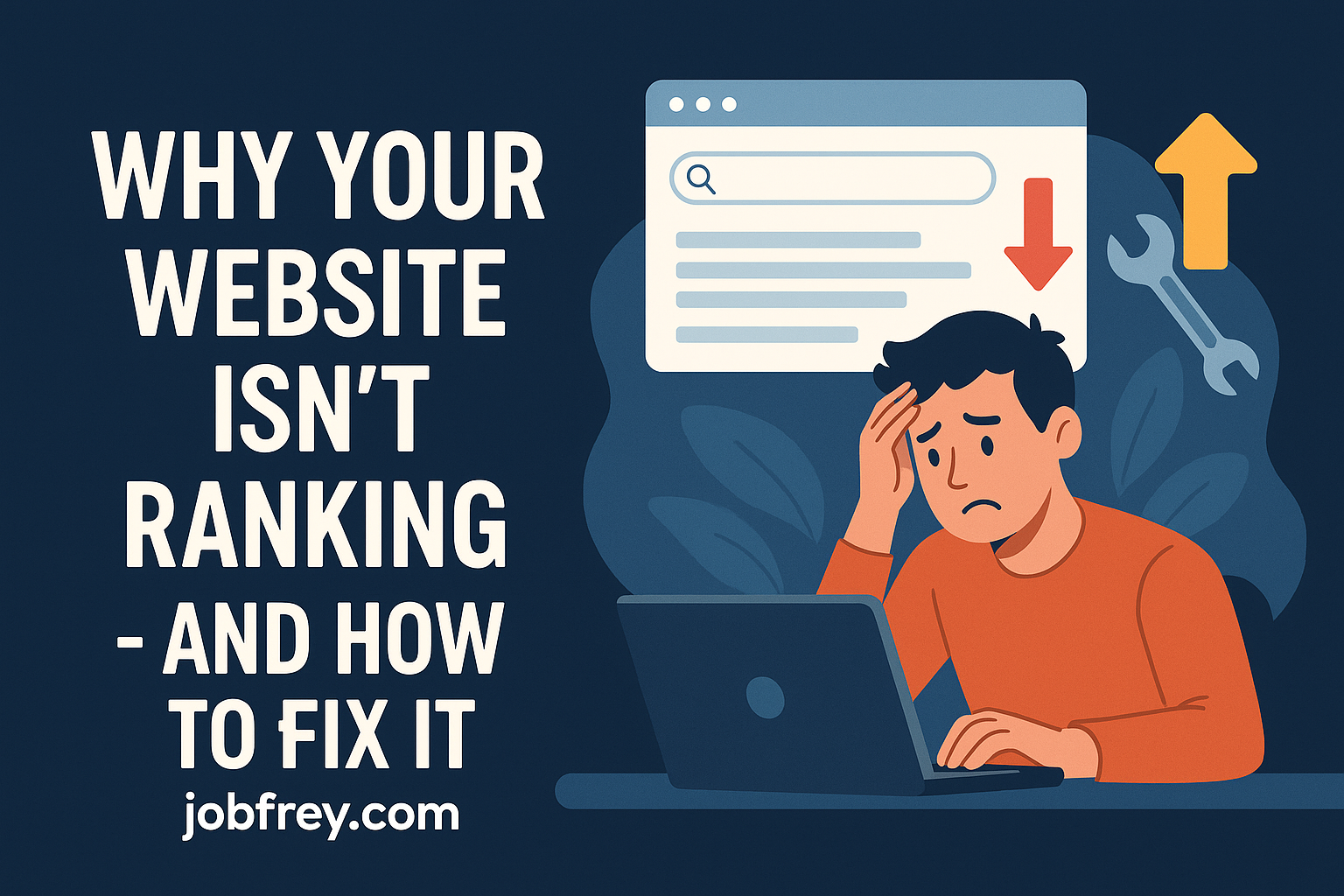Understanding Search Engine Rankings
Search engine rankings refer to the position of a webpage in the search engine results pages (SERPs) for a particular keyword or phrase. This ranking significantly impacts a website’s visibility Why Your Website Isn’t Ranking and How to Fix It, as higher positions generally lead to increased traffic and accessibility. The algorithms that search engines like Google use determine these rankings; they are sophisticated systems designed to provide users with the most relevant and useful results based on their search queries.

When a user performs a search, the search engine engages in a process called indexing, where it scans, evaluates, and stores information from websites to build a comprehensive database. The algorithm then analyzes this database, considering various factors to compute a ranking for each webpage. These factors include relevance to the search keyword, the quality of content, the number and authority of backlinks, and user engagement signals such as click-through rates and time spent on page.
Creating quality content is paramount in improving a website’s ranking on Google. Content should be informative, engaging, and tailored to meet user intent. Additionally, backlinks—links from other reputable websites to yours—act as endorsements, signaling credibility to search engines. More backlinks from authoritative sites typically result in a boosted ranking, reinforcing the necessity of a solid link-building strategy.
| Factor | Description |
|---|---|
| Content Quality | Engaging and relevant information that satisfies user intent. |
| Backlinks | Links from authoritative sites that enhance credibility. |
| User Engagement | Metrics indicating user interaction and satisfaction with the site. |
Understanding these core concepts is vital for anyone looking to improve their website’s ranking. By focusing on these elements, webmasters can effectively strategize on how to check website ranking and take actionable steps towards enhancing their online presence.
Common Reasons for Poor Rankings
When seeking to understand why a website may not achieve desired rankings on search engines, several crucial factors should be assessed. One of the primary reasons is related to technical SEO issues. For instance, slow loading times can hinder the user experience, which consequently affects how search engines rank the site. If a website takes too long to load, users may abandon it, leading to higher bounce rates that signal to search engines that the content may not be engaging or relevant. Additionally, mobile optimization is paramount. With an increasing number of users accessing the internet via mobile devices, a lack of optimization can prevent a site from ranking well on searches performed from these devices.
Content-related problems can also significantly impact website ranking. Keyword stuffing, the practice of overusing keywords to manipulate rankings, often leads to poor readability and can result in penalties from search engines. Instead, focusing on creating high-quality, original content that naturally incorporates relevant keywords is more effective. Sites lacking unique content or offering little value to the reader will often suffer lower rankings.
External factors, such as website authority and backlinks, also play an essential role in determining a site’s visibility. A website with low authority may struggle to rank well, as search engines prioritize sites with strong reputations. Negative backlinks from spammy or irrelevant sites can further undermine a website’s credibility, impeding its ranking potential. Engaging in practices to build quality backlinks and enhance overall website authority can substantially improve one’s standing in search engine results.
By understanding and addressing these common pitfalls—technical SEO issues, content-related problems, and external factors—website owners can begin to identify and rectify the issues that may be preventing them from achieving higher website rankings.

Strategies to Improve Your Website’s Ranking
Improving your website’s search engine ranking requires a multi-faceted approach focused on several key strategies. One of the first steps is conducting thorough keyword research. Understanding what terms your potential audience is searching for will allow you to optimize your content effectively. Use tools that provide insights into search volume and competition for specific keywords, which will help you identify the most effective keywords for your audience.
Next, on-page SEO optimization is crucial. This includes refining elements such as title tags, headers, and meta descriptions to incorporate your target keywords naturally. Ensuring that these elements accurately reflect the content on your pages will not only help search engines understand your website better but also improve user experience, directly impacting how to check website ranking metrics.
Another vital aspect is improving your website speed. Websites that load slowly can lead to high bounce rates, negatively affecting your overall ranking. Consider optimizing images, minimizing CSS and JavaScript, and utilizing caching solutions to enhance loading times. A fast website provides visitors with a better experience and encourages them to explore more pages.
Creating high-quality, engaging content is instrumental in attracting visitors and improving rankings. Content should be original, informative, and well-structured to encourage readers to spend time on your site. Regularly updating your content can also signal to search engines that your site is active and relevant, which is essential for maintaining a good website rank checker status.
Building a strong backlink profile cannot be overlooked. Secure backlinks from reputable sources to enhance your website’s credibility and authority. Finally, leveraging social media platforms to share your content can drive traffic and increase organic visibility, further improving your website’s ranking on Google.
| Strategy | Actionable Steps |
|---|---|
| Keyword Research | Utilize tools to identify high-volume keywords. |
| On-Page SEO | Optimize title tags, headers, and meta descriptions. |
| Website Speed | Minimize code and optimize images for faster loading. |
| Content Creation | Create original and engaging articles regularly. |
| Backlinks | Build relationships with authoritative sites for link building. |
| Social Media | Share valuable content across different social platforms. |
Monitoring Your Progress and Adjusting Tactics
In the quest for improved visibility and higher placement in search results, monitoring your website’s performance is crucial. Regularly tracking key metrics can inform your understanding of how to rank your website on Google effectively. Some of the most valuable metrics include organic traffic, bounce rates, and keyword rankings. These indicators provide insights into user engagement and SEO effectiveness.
For instance, organic traffic reflects the number of visitors coming from search engines, and a steady increase is often a positive sign. Conversely, a high bounce rate—a situation where visitors leave your website quickly—could indicate that your content is not resonating with its audience. Thus, assessing this metric can help you modify your site’s content or structure to retain users better.
There are several tools available that offer website ranking analysis and keyword tracking capabilities. Tools such as Google Analytics and SEMrush allow you to evaluate performance in real time, providing a comprehensive overview of how your website is faring in terms of SEO. Additionally, a dedicated website rank checker can facilitate ongoing monitoring of your keywords, providing insight into fluctuations that may require strategic adjustments in your approach.

To further aid in this process, it is advisable to develop a framework for tracking the key performance indicators (KPIs) that matter most to your objectives. The table below highlights essential KPIs to monitor regularly:
| Key Performance Indicator | Purpose |
|---|---|
| Organic Traffic | Measures the volume of visitors from search engines. |
| Bounce Rate | Indicates user engagement and content relevance. |
| Keyword Rankings | Assess how well specific keywords are performing. |
The digital landscape is ever-evolving, which necessitates continual learning and adaptation in your SEO strategies. By regularly reviewing the performance data, you can make informed decisions about when and how to adjust your tactics effectively. This approach ensures that your efforts align with your goals, leading to better outcomes in your website ranking endeavors.

